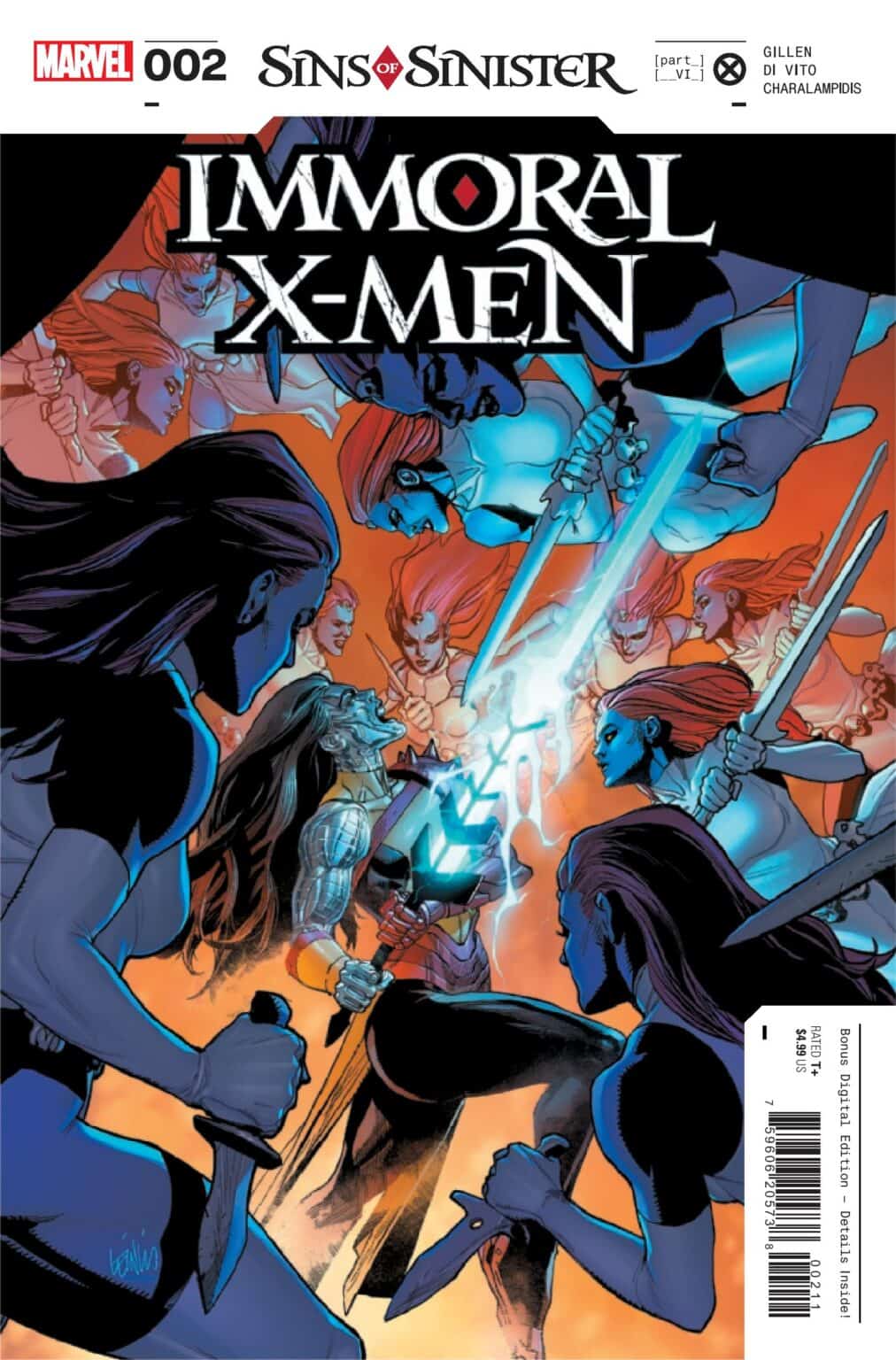Immoral X-Men #2

Recap
A century of hedonistic slaughter has altered the meaning of Hope and, frankly, this messiah's right hand man is getting a bit sick of it all. What's Exodus planning to do with his new Church?
Review
In IMMORAL X-MEN, Gillen has created a book that perfectly balances horror, action, and a heaping helping of pure dystopian fun. He balances heavy theological themes (Exodus presents a take on the biblical figure of Judas that harkens back to appropriately medieval philosophical questions — presenting his role as one which is necessary to the resurrection and, therefore, from one angle at least, a heroic role — and that is the deepest of deep cuts) with gleeful Sinister machinations and all without sacrificing an ounce of his astonishing capacity for working within the outlines of established character. That’s a lot to cram into considerably less than thirty pages, and the fact that he manages all of this without ever losing the thread of his overarching plot is an astonishment.
Sinister’s creation of Rasputin IV as a being who is, to his warped mind, wholly good (and therefore completely manipulable) is very much in character, as is his faux repentance in the hopes of using her to help reset the timeline. One must wonder why he doesn’t just eliminate the Sinister strain from the rest of the council if this was an option he always had in his back pocket. In terms of plot, the fact that the Council of Sinisters are picking themselves off, one by one, is hardly surprising, considering that their progenitor (and his clone/siblings) are busily doing the same thing. If they have a modicum of their original personalities lurking in the spiritual murk, at least a few surviving members would presumably want to go back and reset all of this horror.
As I mentioned, Gillen handled the complexities of theologically based fanaticism absolutely brilliantly. Exodus is a true believer grappling with doubt in an awful but psychologically accurate way. His messiah has proven to be faulty, and he can’t handle that disappointment, so he forces her into becoming what he wants. That action resonates as perfectly in our world as it does in this work of fiction, and it represents a mode of thought which is accurate to the time period from which Exodus emerges. I honestly don’t know what Si Spurrier is doing working in the X-Office, since Kieron Gillen has handled every theme he’s tried so much better (in every possible way and without being offensive). It’s also perfectly coherent, which is more than I can say for Nightcrawlers or Legion of X.
Theological nuances aside, we’re also treated to an army of Mystiques, a sentient ship made out of spare parts, clone vats, L Bombs, and emperors whose atoms are scattered, quite messily, across light-years of cosmos, all of which are beautifully depicted by Andrea Di Vito. Di Vito’s incredibly detailed line art plays like a symphony of horror, a bloody, meaty, abhorrent sludge of absolute corruption wrapped up in a shiny chrome package. It’s a gorgeous piece of art. Jim Charalampidis’ color work is appropriately lush, balancing bright, futuristic surfaces with the corpse hues of discarded limbs bobbing in a broth. These artists work together exceptionally well, elevating this story’s already high caliber.
Beneath the vaguely Star Trek patina, this story hides a wonderfully rotten heart. If you need a little theological and philosophical complexity with your futuristic mayhem, this book is for you. I cannot wait to see what happens next.
Final Thoughts
Beneath the vaguely Star Trek patina, this story hides a wonderfully rotten heart. If you need a little theological and philosophical complexity with your futuristic mayhem, this is the book for you. I cannot wait to see what happens next.
Immoral X-Men #2: Playing Judas
- Writing - 10/1010/10
- Storyline - 10/1010/10
- Art - 10/1010/10
- Color - 10/1010/10
- Cover Art - 9.5/109.5/10


